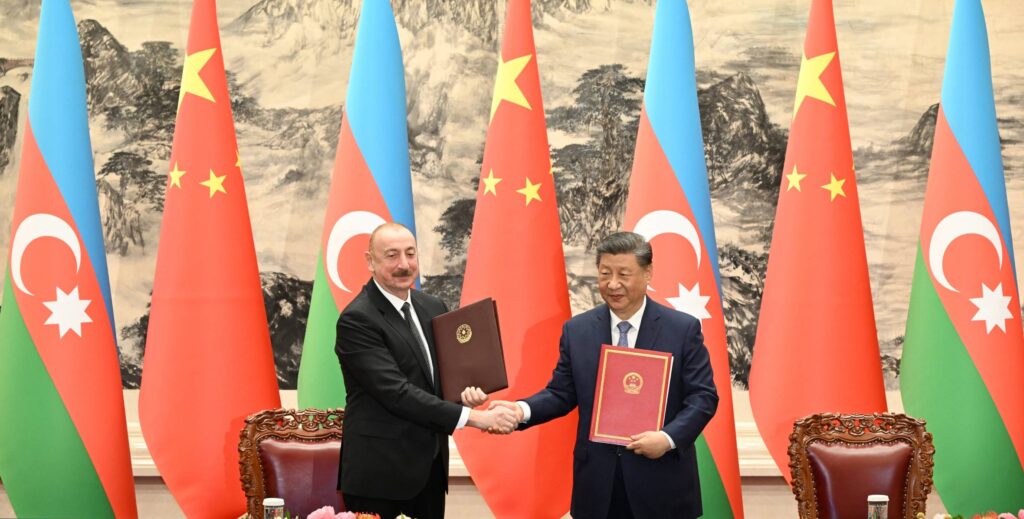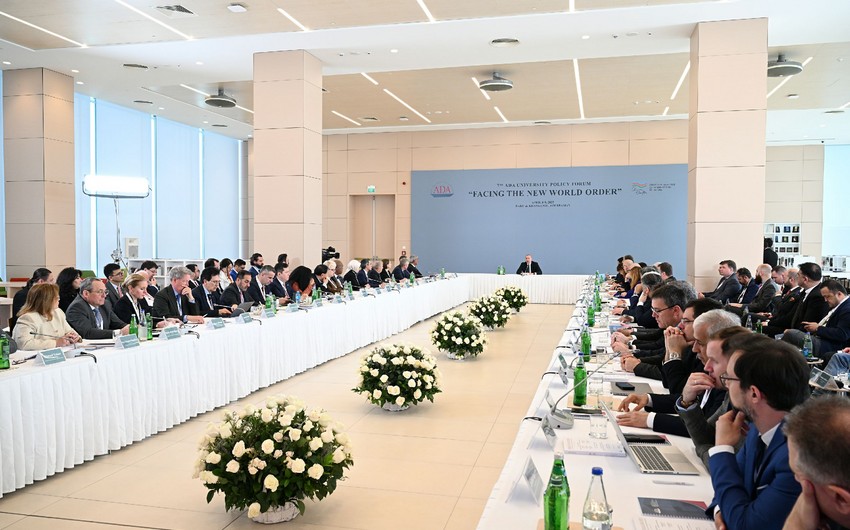'Comprehensive strategic partnership'- new stage in China-Azerbaijan relations
Agreement between China and Azerbaijan
In Beijing, the capital of the People’s Republic of China, Azerbaijan and China signed an agreement on a “Comprehensive Strategic Partnership.” The document paves the way for deepened cooperation between the two countries in political, economic, energy, cultural, and social spheres.
Historical context of relations
Azerbaijan and China established diplomatic relations in April 1992 — shortly after Azerbaijan gained independence from the Soviet Union in December 1991. Over the past 33 years, this partnership has steadily evolved, marked by growing trade, investment, and cultural exchange. Azerbaijan has become a key participant in China’s Belt and Road Initiative (BRI), leveraging its strategic location in the South Caucasus to facilitate links between Europe and Asia. Key milestones include:
- 1992: Establishment of diplomatic relations, laying the foundation for cooperation.
- 2019: China pledged an $800 million economic package to boost investment in Azerbaijan’s non-oil sector, including a $300 million tyre plant and agricultural projects.
- July 2024: At the SCO summit in Astana, both countries elevated their relations to a strategic partnership, setting the stage for closer cooperation.
Trade has become a cornerstone of the relationship. In 2024, China was Azerbaijan’s fourth-largest trading partner, accounting for 7.9% of total foreign trade and 17.69% of imports. Trade volume in 2024 reached $3.744 billion, a 20.7% increase compared to the previous year. Azerbaijan primarily imported vehicles and machinery from China.
Joint Statement on Comprehensive Strategic Partnership

On 23 April 2025, during Azerbaijani President Ilham Aliyev’s state visit to China, the two countries signed a Joint Statement on a Comprehensive Strategic Partnership, officially elevating bilateral relations. The agreement, signed by Presidents Aliyev and Xi Jinping, builds on the 2024 declaration and covers cooperation in politics, economics, security, and culture. The two sides also agreed to abolish visa requirements for holders of ordinary passports, easing travel and exchanges between the countries.
During President Aliyev’s visit to China from 22 to 24 April 2025, talks in Beijing resulted in the signing of two major agreements. Endorsed by both presidents, these documents mark a new phase in bilateral ties.
This partnership brings relations to a higher level and envisions close cooperation across multiple areas:
- Politics: Both sides reaffirmed mutual political trust. Azerbaijan expressed its support for the “One China” policy and opposed Taiwan’s independence, while China recognised Azerbaijan as a priority partner.
- Economy: The partnership aims to expand trade, investment, and economic diversification, aligning with Azerbaijan’s 2030 Social and Economic Development Strategy and China’s Belt and Road Initiative (BRI).
- Security: The agreement highlights cooperation within international organisations such as the SCO and a shared commitment to regional stability.
- Culture: The visa-free arrangement will promote international exchanges and strengthen cultural understanding between the two peoples.
Energy and trade agreements
Several key agreements were signed during the visit, particularly in the field of renewable energy, highlighting the economic foundation of the partnership. On 22 April 2025, six documents were signed, according to CE Energy News. Among them:
- An investment agreement for a 100 MW solar power plant in Gobustan, scheduled to be commissioned in 2026, expected to generate 180 million kWh of electricity annually.
- An executive agreement on a 2 GW offshore wind power project — a major step in renewable energy development.
- Agreements, likely as part of a pilot initiative, for the construction of solar power plants totalling 260 MW, a 100 MW floating solar power station, a 30 MW battery energy storage system, and another 2 MW wind project.
These projects aim to diversify Azerbaijan’s energy mix and reduce reliance on fossil fuels, aligning with China’s expertise in renewable energy technologies. Trade cooperation is further underscored by the 2024 trade volume of $3.744 billion. China imports oil and gas, while Azerbaijan imports machinery and consumer goods.
Visa-Free travel agreement
On 23 April, Azerbaijan and China signed an Agreement on the Mutual Abolition of Visa Requirements for Holders of Ordinary Passports. The document was signed by Foreign Ministers Jeyhun Bayramov and Wang Yi. As part of the broader framework of the comprehensive strategic partnership, the agreement aims to strengthen international ties, promote tourism, and boost economic and cultural exchanges. Key provisions include:
- Mutual exemption: Holders of ordinary passports from both countries will be able to travel visa-free once the agreement takes effect, following the completion of necessary procedures on both sides.
- Implications: It is expected that the agreement will allow stays of up to 30 days, similar to the unilateral visa-free regime China has applied to citizens of 38 countries since December 2023. However, specific terms have not yet been officially confirmed.
- Historical context: From 20 July 2024 to 20 July 2025, Chinese citizens were able to enter Azerbaijan without a visa under a temporary regime allowing stays of up to 30 days per trip, for a maximum of three trips. The new agreement makes this arrangement permanent and reciprocal.
This deal is expected to boost travel between the two countries and offer Azerbaijani tourists greater opportunities to explore China’s rich cultural and business potential.






















